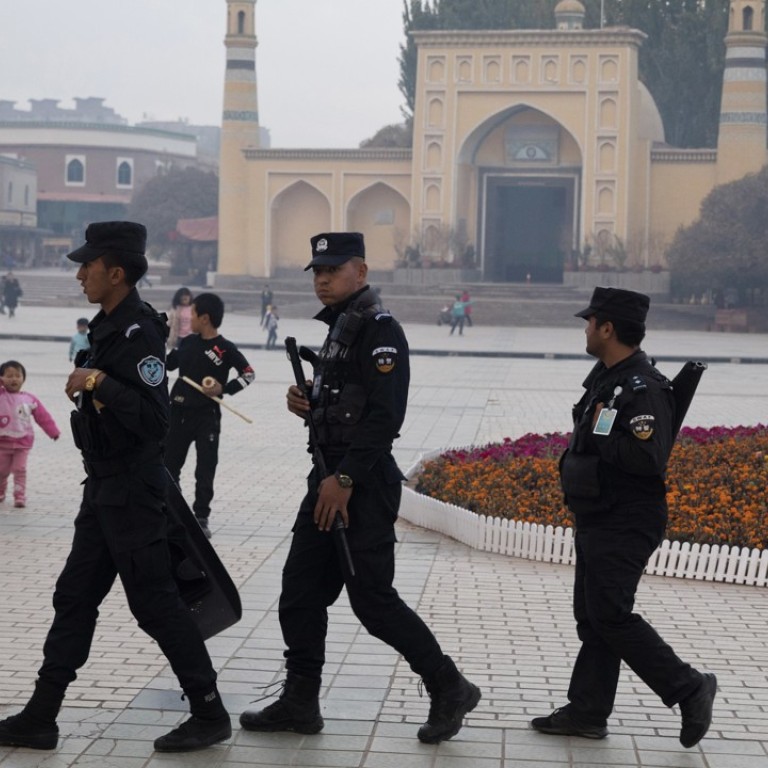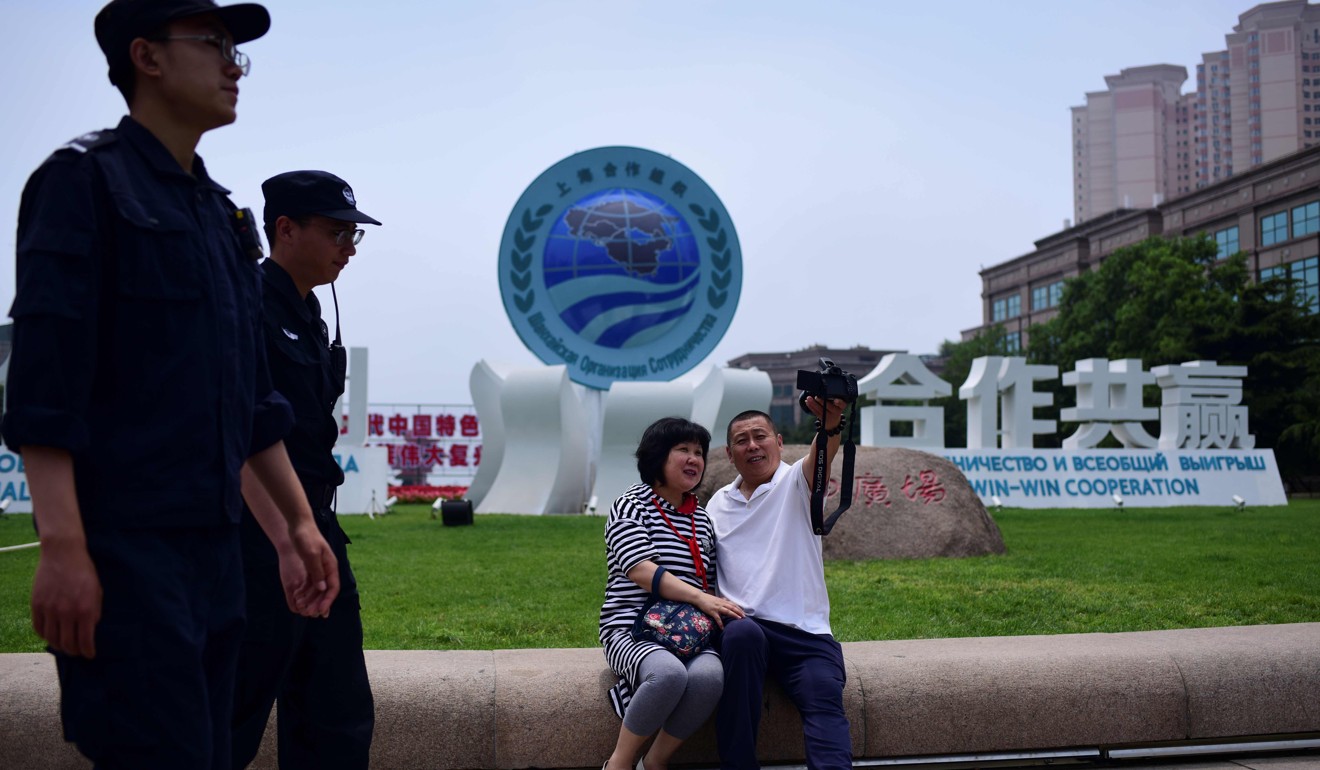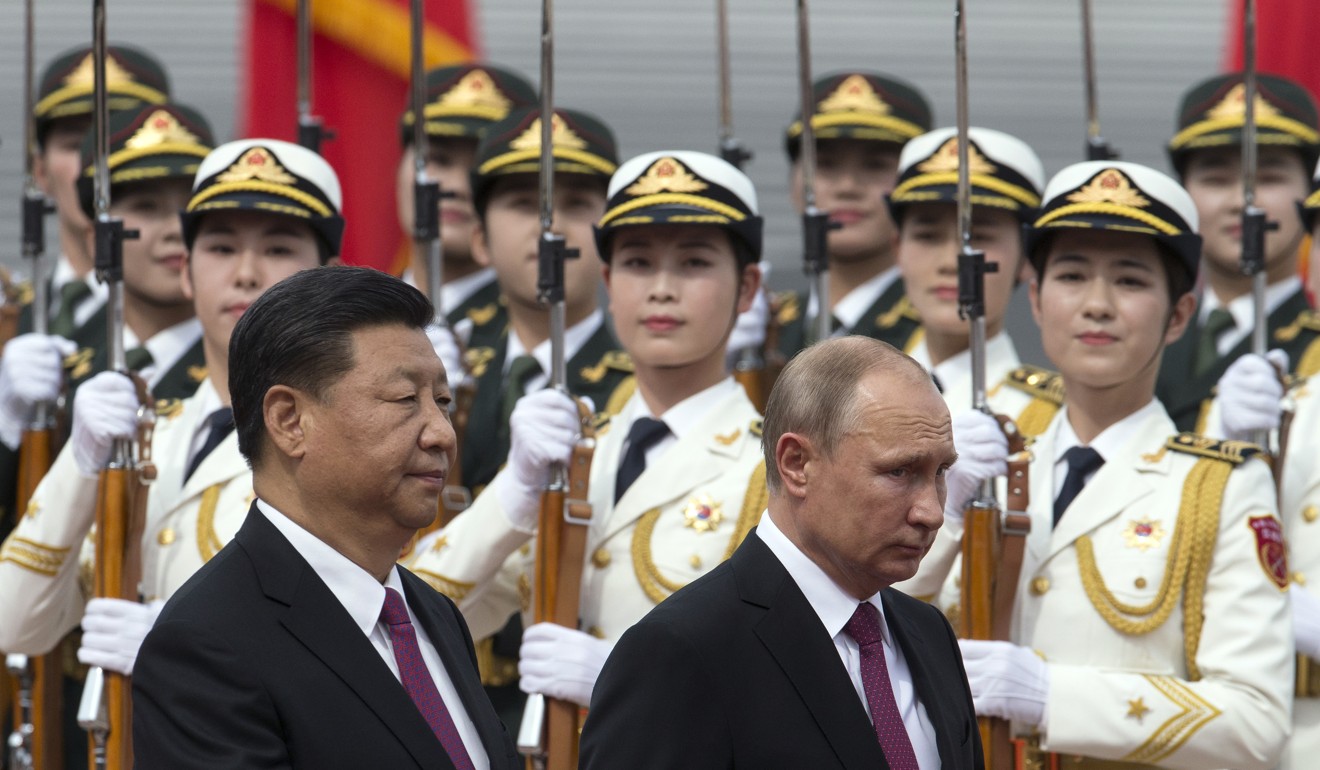
China calls on region to work together to fight terror threats ahead of security summit
Terrorism is the region’s ‘most grave security challenge’, Beijing says
China has called for countries in the region to work together to fight terror threats ahead of a key security summit, as Beijing tries to safeguard its numerous trade and infrastructure projects in Central and South Asia.
Joint efforts to combat terrorism are the most important aspect of regional cooperation, the head of the Ministry of Public Security’s International Cooperation Department told reporters on Friday.
“The threat of terrorism is the most grave security challenge facing the region,” Liao Jinrong said in Qingdao, where the Shanghai Cooperation Organisation’s (SCO) annual meeting will be held over the weekend.

Liao said there had been new developments in the way crime was committed by global terror groups that made it more difficult to prevent, and the threat posed by terrorists in neighbouring countries was growing.
Since it was founded in 2001, the SCO had cracked down on “several hundred” terrorist cases, with extremists captured and a large amount of ammunition and explosives seized, he said.
Leaders of the bloc’s eight members – including India and Pakistan, who will attend for the first time as full members – will discuss both regional and global security issues at the summit, he said.
Iranian President Hassan Rowhani will also attend the summit in Qingdao – Iran has observer status at the SCO – in his first overseas trip since US President Donald Trump decided to pull out of the 2015 Iran nuclear deal in early May, a move opposed by Russia, China and several major European powers.
Russian President Vladimir Putin meanwhile said in Beijing on Friday that cooperation between Russia and China had reached “an all-time high”, and he was awarded the country’s first “friendship medal”. The two countries have been edging closer at a time when both have had tense relations with the United States.

The SCO was set up to resolve border disputes among six member countries – China, Russia, Kazakhstan, Kyrgyzstan, Tajikistan and Uzbekistan. The focus has since shifted to anti-terrorism and also economic cooperation under Beijing’s signature belt and road strategy.
India and Pakistan were admitted as full members last year. The bloc also has four observer states – Afghanistan, Belarus, Iran and Mongolia – and six dialogue partners, including Turkey, a Nato member.
But analysts are concerned that hostilities between New Delhi and Islamabad over territorial disputes could hold back the bloc’s decision-making and slow progress on its economic and security agenda.
Li Wei, an anti-terrorism specialist at the China Institutes of Contemporary International Relations, said there had been significant improvement in the fight against terrorist activities in China, Russia and Central Asian countries in recent years, but the same progress had not been made in South Asia.
“Expansion of the organisation means there will be new threats to take into consideration when designing ways to reduce the problems from terrorism,” Li said.
But he said Pakistan and India – who have been trading accusations of state-sponsored terrorism – could see an improvement in relations through their membership of the SCO if they can get past tensions and work together via the multilateral platform.
“China is keen to counter terrorism not just because of its global belt and road projects, but because no country can deal with these threats through domestic policies alone,” Li said. “China has a special role in this because those projects will help to bring economic development to other countries, and this could effectively help to combat terrorism. Development and regional stability are of course interrelated.”
India has so far refused to join China’s sprawling trade initiative, wary of Beijing’s growing influence in the Indo-Pacific region and also aiming to cement its presence in Central Asia.
Liao said drug trafficking, cross-border organised crime and cybercrime were also threats to the region and the security grouping was working on measures to tackle those challenges.


